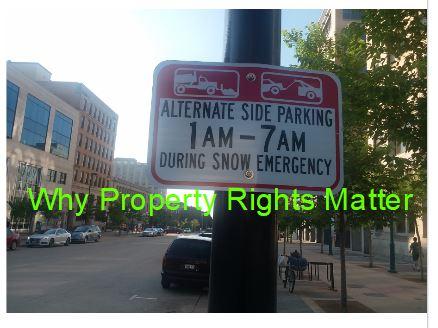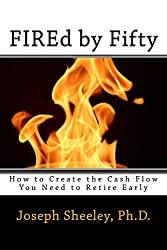 Why Property Rights Matter
Why Property Rights Matter
The biggest casualty from the coronavirus response has been business property rights. People who have spent years building up a business have been forced to close, many of them losing what they have spent years building and that was providing money for their families. The Constitution does allow for governments to take from the private sector when it is for the public good, but the person losing their property must be compensated. The government needs to pay the person fair value for the property being seized. This is included in what has been come to be known as the “Takings Clause” in the 5th Amendment of the Bill of Rights:
“No person shall be held to answer for a capital, or otherwise infamous crime, unless on a presentment or indictment of a Grand Jury, except in cases arising in the land or naval forces, or in the Militia, when in actual service in time of War or public danger; nor shall any person be subject for the same offense to be twice put in jeopardy of life or limb; nor shall be compelled in any criminal case to be a witness against himself, nor be deprived of life, liberty, or property, without due process of law; nor shall private property be taken for public use, without just compensation.“
(Note, this site contains affiliate links. As an Amazon Associate I earn from qualifying purchases. When you click on an affiliate link and buy something, The Small Investor will get a small commission for the referral. You are charged nothing extra for the purchase. This helps keep The Small Investor going and free. I don’t recommend any products I do not fully support. If you would like to help but don’t see anything you need, feel free to visit Amazon through this link and buy whatever you wish. The Small Investor will get a small commission when you do, again at no cost to you.)
So, the government can take your home or your business if they need to do things which serve the public like build a road, but they must provide “just compensation” when doing so. Those who had losses due to the forced closure of their businesses during the pandemic should be compensated for their loss. Your knee-jerk reaction to this statement might be, “No. I don’t want to pay for all of those losses.” But as we’ll explain in this article, you should be lobbying for these payments, even if it will be expensive. The time to say no was before the businesses were closed. If lives are worth more than money, you should be willing to pay your share of that money and not leave it on entrepreneurs to pay the bill. Here’s why.
Property rights are essential to free enterprise
Property rights are essential for building a strong economy. They were particularly important for our forefathers since they had experienced what it was like to live under a king who could just seize your property at his pleasure. A lack of property rights, or an effective lack of property rights caused by a corrupt government, is often why countries that should be prosperous remain desperately poor, or at most rise to 2nd world status.

(If you enjoy The Small Investor and want to support the cause, or you just want to learn how to become financially independent, please consider picking up a copy of my new book, FIREd by Fifty: How to Create the Cash Flow You Need to Retire Early This is the instruction manual on how to become financially independent.)
Why capitalism creates far more wealth for everyone than socialism?
The free enterprise system works so well because it incentivizes people to figure out what people need and produce it as efficiently as possible. People are constantly trying to figure out what they can sell or do that others will want and pay them for. Not only do they think about what will sell, but where they should sell it, when they should sell it, and how it should be packaged. Because there is typically competition, and because they know they will sell more if they can price it lower, people also try to figure out how they can bring the cost to produce the item down so that they can sell it for less, undercutting their competition. This means they invest in training and tools. Often these tools are expensive and require a long time to pay for themselves.
Contrast this with socialism, for example, the Basic Minimum Income (BMI) idea being floated around. The concept is that everyone should just get a check that covers their basic needs, things like food, shelter, and clothing. The philosophy is that because they are human, they have a right to these things, and therefore they should just get them provided for “free.” This idea makes people think of themselves. “How little can I live on, so that I can just live on the BMI I receive and be happy?” “How can I get more in my BMI check?” It makes people think of themselves and what they can get, rather than thinking of others and how they can meet their needs. Even if someone is just working a basic job that pays for their apartment and their food while they have their medical care and some other needs met through socialism and charity, at least they’re contributing and producing enough to cover some of their basic needs. With BMI, they’re covering none of their basic needs. this means that many people will not produce anything, leaving the whole society poorer.
The other side of BMI is that the “free” money needs to come from somewhere. Somebody needs to produce the food that people are buying with their BMI and the homes that people are living in with their BMI. The money comes from people who are working and are producing, so taxes on working people would need to be higher. Taxes would also be highly progressive (because otherwise people in low income jobs would just see that they’re paying as much in taxes as they’re receiving in BMI anyway). This would mean that if you made $30,000 per year with a $30,000 per year BMI, you would probably end up paying $10,000 in taxes for a net gain of $50,000 per year. If you made $50,000 per year and BMI was $30,000, you would probably end up paying $20,000 in taxes for a net gain of $60,000 per year. If you made $150,000, you would probably pay $100,000 per year in taxes for a net gain of $80,000 per year.
So, if you did nothing, you would have $30,000, which many people would find to be plenty to live on and give them lots of free time to enjoy. Those who worked low wage jobs would end up with $50,000 per year, go to college and move up and net $60,000 per year, and build a company or get an advanced degree and you net $80,000 per year. Many people would rightly look at what they were netting and decide that it wasn’t worth it to build a company or get an advanced degree because their lifestyle would not be that much better. Many would even look at what they would make as a manager or with a BS degree and decide it wouldn’t be worth the hassle, deciding instead to take a job where they did not have a lot of responsibility or the need to make decisions.
This would cause there to be fewer people putting in the effort to create the companies and direct people to be more efficient and produce more, meaning that there would be less wealth generated, so everyone would have less. This would mean taxes would go up to sustain the BMI, which would decrease the incentive to produce even further, which would decrease the amount of wealth being generated even further. The standard of living would decrease for people who were working and producing, meaning they would work and produce less. More and more people would decide to just not work and live off of the BMI. The standard of living for everyone would then decrease, where people might be receiving the same amount of money, but everything would cost more, so everyone would be able to buy less. Eventually the BMI would not be enough to cover even all of your basic needs.
If you look at countries with high taxes and a lot of government hand-outs, you’ll see that this is the case: lower standards of living (in the form of house size, cars, vacations, stuff) and less work. There is also less innovation and development of products that make life easier, little founding and growth of companies, and relatively little production. Some might say that this is a better lifestyle because people aren’t so focused on work and production, but it definitely decreases the standard of living for everyone, including the poor.

Want all the details on using Investing to grow financially Independent? Try The SmallIvy Book of Investing
What is happening with the BMI and other socialistic policies is that you are destroying property rights. You are taking things from people who have earned them and giving them to people who have not. (Along the way, those doing the taking also tend to keep a little for themselves. When you’re handing out a hundred billion dollars, keeping $10M for yourself seems reasonable.) When you take away things from people when they earn them, it doesn’t make them want to produce and earn more. It makes them want to produce the least amount that they need to, or produce even less and take from others. It becomes a game of “How little can I do and how much can I get?” Highly productive people will decide to just go off-the-grid and produce what they need for their families and nothing more. It isn’t worth it to build a big company and work hard.
Property rights are needed for big investments
All investment involves risk, but investments are made with an understanding of what the risks and the potential rewards are. Reasonable people only make investments when their chances of success are very high and the rewards are worth the risks taken. For example, no one invests in the lottery unless they can buy all of the tickets and be reasonably assured that they will win and make enough from it to provide a worthwhile return on their money. They might buy a ticket or two once in a while, knowing that they are likely to lose but seeing it as cheap entertainment, but they aren’t going to put thousands of dollars into it each week.
Likewise, people aren’t going to spend a million dollars to build a big restaurant that would employee dozens of people if they are not going to get a reasonable return on it due to high taxes or other costs or if it could just be taken away from them. They might build a cart for a few hundred dollars and wheel it through town, or they might rent a cheap place and put in cheap furniture and appliances, but they aren’t going to make a big investment.
Likewise, if they were to go to others and ask them to make an investment to build something nice, those others wouldn’t make the investment if they didn’t see that the restaurant was making money and would continue to do so. They also wouldn’t invest if it was likely that taxes or costs on the business were likely to go up substantially in the future or the place would likely be closed for some reason. They would need to be reasonably sure that the business would continue to operate long enough for them to make their investment back and realize a reasonable return.
We’ve destroyed property rights with the pandemic closings
The chances of a pandemic occurring that is deadly enough and contagious enough to sicken and kill enough people to close down the economy is very remote. The flu makes a lot of people miss a few days of work each year and kills people who are vulnerable, but it is very rare that you’ll see large segments of the population unable to work at the same time. The last pandemic that was deadly for people of working age was back in 1918, and even then, businesses were able to continue to function. This means that those building a business or investing in one can do so without seeing a pandemic as a significant risk.
If the government is going to force businesses closed, however, and stop people from working even though the risk they face personally is very low, it raises the risk that a pandemic will shut everything down and ruin the business. It isn’t the effects of the actual disease, but the reaction of government that causes the damage. It is very rare that a disease will actually be deadly enough to cause people to stay home and not visit businesses or work voluntarily. It is also rare that a disease will be severe enough and contagious enough to cause enough of your workers to be sidelined to make it impossible to open. If the city or state starts closing things down and ordering everyone to stay home whenever a disease is a threat to the elderly population, which is virtually every cold and flu, then shutdowns would become very likely. Indeed, it would be a rare decade where you wouldn’t have one or two shutdowns if this is the new normal.
If you were sure to be shutdown within five or ten years, it would mean that you couldn’t build things where you were not able to recoup your investment quickly. You wouldn’t spend nights and weekends struggling to make a profit during the early years if you knew you were likely to lose it all just when things started rolling and all of your efforts were starting to pay off. You might not even want to go through the hassle of filling out the forms and hiring a lawyer to help you get a business permit. You wouldn’t invest to build a big restaurant or a chain of restaurants unless you received a huge return within the first year or two. Very few businesses perform this well.
This means we’d have mom and pop businesses at best, which would mean those that don’t have the drive and ability to open businesses would be left out. This means the working poor would be the non-working poor. The desperately poor. So, while you may be thinking that it is just a bunch of rich business owners who are hurt by the shutdown, and they “deserve it” for some twisted reason, realize it is really the working poor who will actually be hurt the most. Property rights are essential.
Have a burning investing question you’d like answered? Please send to [email protected] or leave in a comment.
Follow on Twitter to get news about new articles. @SmallIvy_SI
Disclaimer: This blog is not meant to give financial planning or tax advice. It gives general information on investment strategy, picking stocks, and generally managing money to build wealth. It is not a solicitation to buy or sell stocks or any security. Financial planning advice should be sought from a certified financial planner, which the author is not. Tax advice should be sought from a CPA. All investments involve risk and the reader as urged to consider risks carefully and seek the advice of experts if needed before investing.
